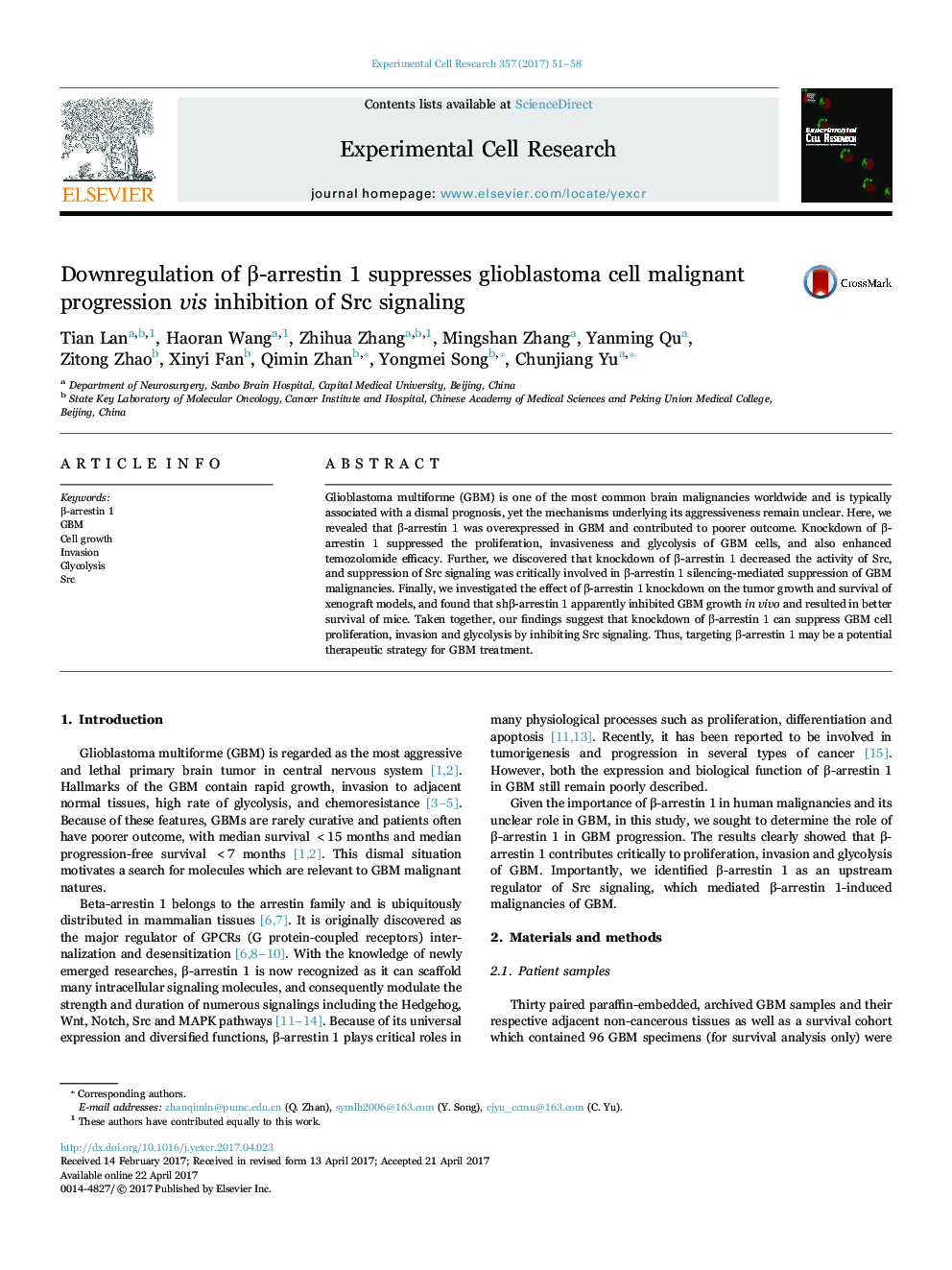| Article ID | Journal | Published Year | Pages | File Type |
|---|---|---|---|---|
| 5526884 | Experimental Cell Research | 2017 | 8 Pages |
â¢Expression of β-arrestin 1 was upregulated in GBM and contributed to poor outcome.â¢Knockdown of β-arrestin 1 inhibited the proliferation and glycolysis of GBM cells.â¢Knockdown of β-arrestin 1 decreased the activity of Src signaling and expressions of malignancy-related factors.â¢Knockdown of β-arrestin 1 suppressed GBM growth in vivo.
Glioblastoma multiforme (GBM) is one of the most common brain malignancies worldwide and is typically associated with a dismal prognosis, yet the mechanisms underlying its aggressiveness remain unclear. Here, we revealed that β-arrestin 1 was overexpressed in GBM and contributed to poorer outcome. Knockdown of β-arrestin 1 suppressed the proliferation, invasiveness and glycolysis of GBM cells, and also enhanced temozolomide efficacy. Further, we discovered that knockdown of β-arrestin 1 decreased the activity of Src, and suppression of Src signaling was critically involved in β-arrestin 1 silencing-mediated suppression of GBM malignancies. Finally, we investigated the effect of β-arrestin 1 knockdown on the tumor growth and survival of xenograft models, and found that shβ-arrestin 1 apparently inhibited GBM growth in vivo and resulted in better survival of mice. Taken together, our findings suggest that knockdown of β-arrestin 1 can suppress GBM cell proliferation, invasion and glycolysis by inhibiting Src signaling. Thus, targeting β-arrestin 1 may be a potential therapeutic strategy for GBM treatment.
